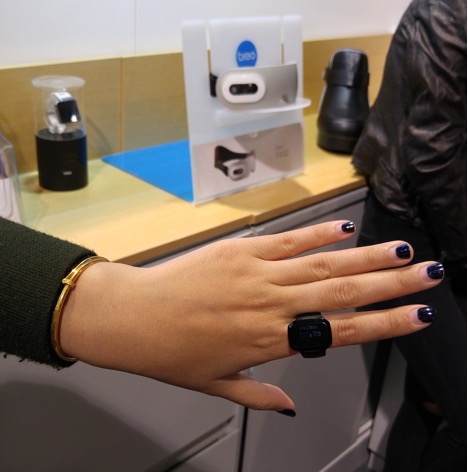By James R. Lint
Faculty Member, School of Business, American Military University
Senior Editor for In Cyber Defense and Contributor, In Homeland Security
Employees often pitch the need to attend a conference or convention for training purposes to their boss. Their justifications for the trip often include the event’s importance or proximity to a relative’s home. In other cases, they may ask to attend the event because “it’s interesting.”
However, that is NOT the way to sell an event to your manager. It’s better to attend an event like Consumer Electronics Show (CES), which is educational because it demonstrates future industry-disruptive technologies and fosters networking.
Seeing Future Technology Before Others Do
One of the best reasons for going to a conference is the opportunity to see future technology that could be of interest to your current company. For example, my CES report on Innovation in the Future of the Car was one example. But CES’s annual show also highlighted smaller innovations, including a blood pressure measuring device from China.
This was not the familiar big blood pressure cuff and gauge; it was a finger ring. The ring is capable of tracking your blood pressure for a month and sending the data to an app.
But if the ring could give daily results, it would provide greater convenience for patients who need to log their BP results on paper and report the results to a healthcare provider. The ring will probably appear in the marketplace in two to five years and could be in common use soon after that.
Uncovering Current Technology Trends
A second reason to attend an event is to become more familiar with current trends. For example, it was easy to spot trends by walking around the huge CES convention floor.
At CES, the size and locations of display booths and advertising showed the vitality of each company. Some companies had small booths and looked like they were outfitted with the contents of one suitcase. Others, like Microsoft and Samsung, looked like they brought half their California facilities with them to Las Vegas.
Another example was LG. This giant electronics company had a large floor space and displayed every type of home appliance imaginable. All of them were connected and coordinated by a talking and moving robot. About 40 guides in LG uniforms made it easy for attendees to find help and get questions answered. LG was the model for anyone who wanted to study marketing or customer service.
Trends could also be found outside the CES convention center on its large data screens and on Twitter and other social media sites. For example, the CES website had a page dedicated to what was trending in social media. Buzz Radar frequently updated this page during the convention. Tracked items included the most used words, key stats, latest photos and trending items.
Events like CES Are Prime Networking Opportunities
Don’t forget – large events like CES are a great way to make contacts. For instance, CES attracts more CEOs and business executives than most people see in their lifetimes. Perhaps one of those top execs who make presentations or answer questions in their booth could be your next boss.
Attending CES or similar events is a useful way to expand your list of contacts. When your boss asks about a new technology, you will likely be the person who has the answers, the business card with an exec’s contact information and details about the company in question.
Creating a Trip Report to Show Lessons You Learned
After your conference, you probably will be required to write up a trip report when you return. This is your time to show that the trip was worth the cost to your company. Take time to list all the lessons learned to show the value of the convention you attended.
Even if your boss does not ask for a trip report, prepare and present one to your company leaders. It shows your professionalism.
One of the best reasons for writing a trip report is that you can include a recommendation that you be permitted to attend industry events such as CES the following year. You will also have a great reminder of your lessons learned. It makes a great attachment for your request for future travel for your professional development.
About the Author
James R. Lint recently retired as the (GG-15) civilian director for intelligence and security, G2, U.S. Army Communications Electronics Command. He is an adjunct professor at AMU. James has been involved in cyberespionage events from just after the turn of the century in South Korea supporting 1st Signal Brigade to the DHS Office of Intelligence and Analysis as the first government cyber intelligence analyst. He has 38 years of experience in military intelligence with the U.S. Marine Corps, U.S. Army, government contracting and civil service.
Additionally, James started the Lint Center for National Security Studies, a nonprofit charity that recently awarded its 43rd scholarship for national security students and professionals. James was also elected as the 2015 national vice president for the Military Intelligence Corps Association. He has also served in the Department of Energy’s S&S Security Office after his active military career in the Marine Corps for seven years and also served 14 years in the Army. His military assignments include South Korea, Germany and Cuba in addition to numerous CONUS locations. James has authored a book published in 2013, “Leadership and Management Lessons Learned,” and a new book in 2016 “8 Eyes on Korea, A Travel Perspective of Seoul, Korea.”


Comments are closed.